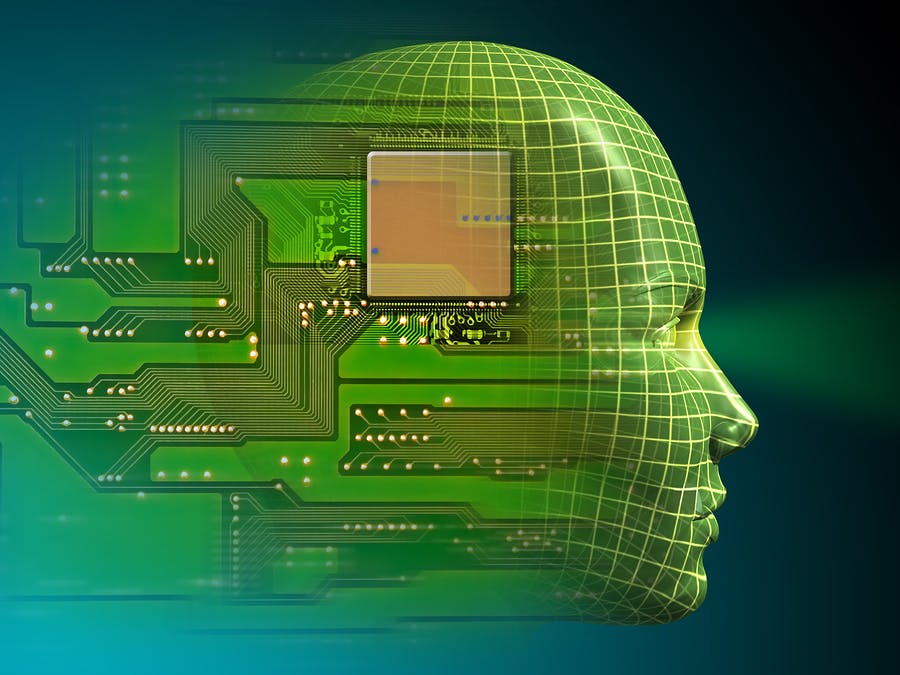Editor’s Note: It’s an annual tradition for TLNT to count down the most popular posts of the previous 12 months. We’re reposting each of the top 30 articles through January 2nd. This is No. 19 of 2017. You can find the complete list here.
∼∼∼∼
In a recent TLNT article on the dawning age of AI and automation, TLNT Editor John Zappe states,
As an HR leader you need to start thinking about the potential impact (because) human resource professionals are directly accountable for the well-being of the organization and the individuals in it.
Research predicts up to 47% of US jobs will be automated with the next 20 years. The large scale adoption of AI and automation will require a significant amount of employee reskilling. HR won’t be exempt from this reskilling requirement in order to adapt to the new workplace.
As technology continues to automate the administrative burden of HR, two important skillsets are emerging: one focused on people and one focused on data.
This is what the new HR skillset will look like in the age of AI and automation.
People-focused skills
As work becomes more efficient, data-driven, and automated by AI and technology, HR will be relied on more than ever to humanize the workplace. Even with today’s technology, we still want to talk to another person when it comes to hiring and managing people and that desire for the human touch is likely not going away soon.
According to Accenture’s report on Creating The Future Workforce, people-focused skills such as creativity, critical thinking and empathy will be at a premium. It cites the World Economic Forum’s prediction that by 2020, the demand for complex problem solving skills will increase by 40%.
This people-focused skillset will be required to accomplish two major HR challenges: employee reskilling and talent advising.
Employee reskilling
As work tasks become increasingly automated, the need to “level up” employees will rise correspondingly.
When AT&T’s internal research found only 50% of their staff had training in the fields of science, technology, engineering, and math (STEM) and the projected need for employees with STEM training was 95% by 2020, they decided to invest more than a billion dollars into new programs and facilities for employee re-education.
People-focused HR professionals will be needed to guide employees through the reskilling process by nurturing a workplace culture that empowers and motivates their employees to learn and develop professionally.
Day-to-day responsibilities for employee reskilling include selecting online learning modules such as MOOCs (i.e., massive open online courses), personalizing training for different learning styles, identifying developmental opportunities to practice and implement new skills, and providing real-time and actionable feedback.
Talent advising
In his SourceCon article, Rob McIntosh calls the talent acquisition leader of the future a talent advisor:
…a trusted recruiting partner to the business who consistently delivers the best candidates in support of the business mission while continually improving the hiring process and candidate experience.
Among the critical competencies of a talent advisor are solving recruiting problems through creativity, using business acumen to get you better outcomes, and influencing hiring managers and candidates.
A major benefit of automation is freeing up HR’s time. People-focused talent advisors will be able to better use their time on initiatives such as reducing bias in hiring, analyzing the ROI of their recruiting software tools and practices, and planning strategic initiatives for proactive hiring based on future growth and revenue.
Data-focused skills
As the workplace becomes more and more data-driven, data-focused analytics experts will become increasingly valuable.
These HR analytics experts are needed to help clean, analyze, and interpret the huge quantities of HR data being collected. The metrics HR reports on will depend on what the business strategy metrics are in order to create alignment.
The skillset of the data-focused HR professionals include a scientific mindset for testing data, domain knowledge to properly interpret results, and business acumen to get buy-in to implement their recommendations.
This data-focused skillset will be required to accomplish two major HR challenges: data storytelling and job redesign.
Data storytelling
Although HR has traditionally been a data-heavy department, this data has mainly been used to create descriptive and retrospective reports on metrics such as headcount or budget spend.
As RJ Milnor, head of talent analytics at Chevron explains, today’s HR analytics experts have progressed from reporting on metrics to advising on analytics.
It’s no longer enough to explain the “what” that happened, you need to be able to explain the “why” something happened as well as recommend a solution (or solutions) based on your analysis.
Using new-hire attrition as an example, the what could be data such as attrition rates and the cost of attrition, the why could be a proposed cause such as new hires leaving because the job isn’t what they expected, and the recommended solution could be to redesign the recruitment process to provide a more realistic preview of the job’s responsibilities and the company culture.
Redesigning jobs
Accenture’s report estimates 44% of the workforce will, at least part-time, be freelancers and temporary workers by 2018.
As workplaces become more flexible, lean, and team-based, jobs will need to be redesigned around project- and collaborative-based work rather than structured, permanent positions.
Data-focused HR experts will need to break down joint goals and team-based projects into individual units, identify the KSAOs required for specific project deliverables, and analyse data such as online work portfolios to match the skillset of freelance and gig workers to the work requirements.
